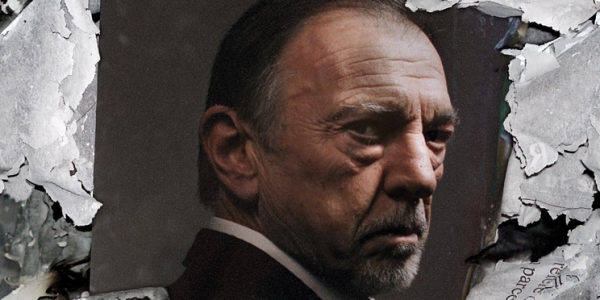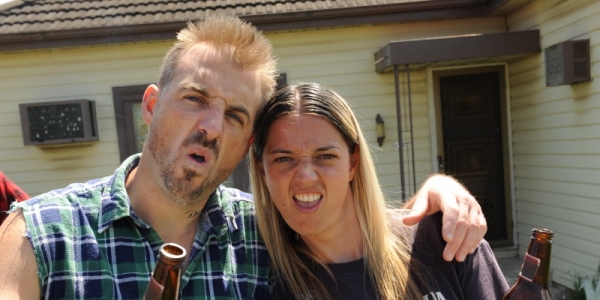Sewell, also the author of Myth, Propaganda & Disaster in Nazi Germany & Contemporary America, one of Australia’s fairly canonical plays, is equally political and skillful in portraying these larger than life, corrupt public figures in Hate. ‘This could be a nation of heroes’, William Zappa utters as John Gleeson, the Labour Party MP and head of a corporate dynasty. The play is inspired by the life of Joh Bjelke-Petersen, a controversial Queensland premier, and it still makes as powerful a statement about what Robin Boyd defined in the ‘60s as Australian Men of Will: ‘the miracle men of ambition, usually capable, always strong in will, the men who travel the most, especially to America, who drive themselves and their big cars hard…and who see themselves as the real-life savers that Australia always needed’. By ‘nation of heroes’, John Gleeson means people as forceful, chauvinist and devious as himself and it all starts and ultimately ends with his family.
Around a powerful family whose members treat each other regularly to crackers and cheese with a touch of Vegemite and a dollop of distrust, Sewell’s weaving of issues of surprisingly relevant aspects of Australian politics 25 years after it was written, power struggles, communication and intimacy is brilliant and poignant.
William Zappa is breathtaking as the family’s patriarch, a King Lear figure just like The Giant is Dancing’s Allen Fitzgerald, whose domineering presence is invariably felt throughout the play. Glenda Linscott is utterly convincing as his wife Eloise as she is confronted with her – to a certain extent of course – wilful ignorance.
Grant Piro’s comedic flare is not lost in his role as Raymond, the oldest son and equally conniving as his dad’s stockbroker. His body language changes (particularly his ticks and hand movements when he’s talking to his father) certainly merit a mention. Sarah Wiseman, as the daughter that for a period escaped her father’s control and worked as an aged care nurse, delivers a powerful performance without being overstated. Ben Geurens is compelling as the quick-witted, over-educated, slacker youngest son who will try to atone for his past inadequacies and do right by his family but at a cost.
The crescendo is not exactly exemplary, the dialogue could be less repetitive, the music less classical and the set and costume designer has come up with a set that required the audience to gyrate their necks on a number of occasions. That said, the economy in the use of lighting and the gap in the center of the stage helps juxtapose the characters and subtly illustrates their contrasts, similarities and overall character development along with delivering a narrative cycle and a sense of release.
This is one of a handful of productions this year at the end of which you will walk out having experienced a catharsis and here’s to hoping that Marion Potts tackles more of Stephen Sewell’s work in the future.
BY NASH PETROPOULOS

